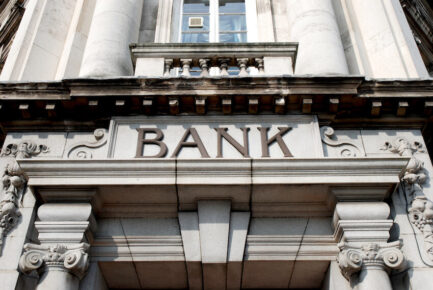Business loans can be useful for businesses that need some extra funding. However, it’s important to understand exactly how they work and whether they are the right option for you before filling in any application forms.
This article will focus on standard business loans, rather than specialist forms of business finance such as invoice financing and merchant cash advances.
What is a business loan?
As the name suggests, business loans are targeted for business use and can range in length, from just a few weeks to several years.
Business loans work much in the same way as personal loans. You make an application for a specific amount to a lender, such as a bank or online lender, and they in turn will assess whether they want to lend to you and if so, at what interest rate.
If they make you an offer, you can decide if the lender’s terms are acceptable and then, once the deal is agreed upon, you will receive the full loan amount. You will then need to repay the amount, plus interest, over the lifetime of the loan in monthly payments.
The amount you can borrow will depend on many factors including the size of your business, the financial situation of your business and your credit rating.
If you fail to keep up those monthly repayments, it could mean that you are charged a late or missed payment penalty fee or could lose any assets which you put up as security for the loan. Missed payments could also be marked on your credit history and your credit score could drop as a result.
» MORE: What is a business loan?
What are the different types of business loan?
There are several types of business loans, but broadly speaking they can all be described as either unsecured loans or secured loans.
Unsecured loans
Unsecured loans mean that you can borrow money without using a business asset – which is anything of value such as property, machinery or stock – as security for the loan.
As unsecured business loans do not come with an asset as security, they are likely to attract a higher rate of interest, meaning the total you pay back will be higher than with a secured loan. However, the advantage of an unsecured loan is that you are not directly at risk of losing an important asset, such as property, land or a crucial item of machinery, if you cannot repay the loan.
Bear in mind that some unsecured business loans may require a personal guarantee. This is when a business owner or director takes on the responsibility of repaying the loan if the business is unable to.
Secured loans
A secured loan means that you are obliged to put up an asset, such as property, machinery or stock, as security for the loan. If you are unable to repay the loan or fall significantly behind on repayments, then you are at risk of the lender seizing that asset.
Because the asset reduces the risk for lenders (as they can get their money back from your asset if you miss repayments), interest rates will often be lower than for unsecured loans.
Pros and cons of business loans
Before applying for a business loan, there are a number of advantages and disadvantages to weigh up:
| Pros | Cons |
|---|---|
| They can be used for a range of purposes, from growing your business to covering cash flow problems. | You may have a smaller choice of lenders, and pay a higher interest rate, if you have a poor credit rating. |
| They can help spread the cost over a set period of time if buying expensive items, such as office equipment. | If your business loan is secured against an asset, you could lose that asset if you don’t keep up with repayments. |
| If your interest rates are fixed, you will know exactly how much you need to repay every month. | You may have to pay an early repayment fee if you want to pay off your loan before the end of the term. |
| You will not give away any equity in your business to secure a loan. | Business loans may not always be a suitable solution if you are in financial difficulty. |
» MORE: Why do businesses need finance?
What are business loans used for?
The lender is likely to want to know what the business loan will be used for before deciding whether to lend. The main thing to consider is that business loans cannot be used for personal reasons, such as a new family car or a holiday.
There are many different reasons why businesses take out business loans but some common purposes are:
Cash flow
This can cover, for example, buying new stock, equipment repairs, cover a bad debt or tide a company over during the low season for a seasonal business.
Buying equipment
Big purchases are not easily met from day-to-day cash reserves, so you might need to take out a loan to meet the cost of printers, machinery, vehicles or construction equipment.
Property costs
Whether it’s making a hefty deposit payment on business premises or a bridging loan to tide you over during a move, property costs could be met with a short- or long-term loan.
Growing your business
This can include large investment costs, which will take some time to bring increased revenue into the business, such as research and development, launching a new business division or product line, restructuring the company or undertaking a big expansion project.
» MORE: How to grow your business
What is the right loan for my business?
Choosing the right loan for your business is a crucial decision. You need to weigh up a number of factors that will determine what the right loan is for you. These include:
How much you want to borrow
Applying for a loan can be a lengthy and time-consuming process. You don’t want to have to do this several times because the amount you borrowed was not enough for the task you were hoping to achieve with the loan. Work out exactly how much the project you are borrowing for will cost and include a contingency amount in case costs rise unexpectedly.
You also need to remember that you will have to pay interest on the whole of the loan, so if you borrow too much for your needs you will be incurring unnecessary costs.
How much you can pay back each month
This will determine how much you will want to borrow and how long you want to borrow it for. A shorter loan term means you will pay less in interest, but your monthly repayments will be higher than if you are borrowing the same amount over the long term. Make sure you include the interest on top of the loan when working out your monthly repayments and any loan fees which might be applied.
Whether you want a fixed or variable interest rate
Loans usually come with a fixed rate, where the interest rate is fixed for the length of the loan, or variable rate, where the interest rate can change if the Bank of England changes its base rate.
With fixed-rate loans, you will know exactly how much your repayments will be each month which could make it easier for you to plan your outgoings in advance. However, if interest rates go down then you could miss out on potential savings. Equally, if they go up then you have the security of knowing that your interest rate will remain unchanged.
With variable rate loans, you could benefit from a fall in interest rates, which would reduce your monthly payments, but they are likely to increase if interest rates go up.
If there are any extra fees and restrictions
It is crucial you understand exactly what type of loan you are applying for. Are there fees payable such as administration or application fees? Are there any early repayment charges if you pay off your loan earlier than expected? Will you be able to borrow more, extend the loan or change your repayments during the loan if necessary or is it fixed? Take your time to compare the different loans available from different lenders.
Applying for a business loan
If you decide that a business loan is the right option for you and you’ve worked out what type of finance best meets your requirements, it may be time to start your application.
Before applying for a business loan, it’s a good idea to check your credit rating to see if there is any opportunity to improve it. A better credit score could help your application and help you to access more favourable products.
You should also get your business finances in order as lenders will want to know information about your business income and expenditure.
For example, they may want to see bank statements and accounts showing your cash flow to help them work out if you can afford a loan.
It will also be a good idea to put together a business plan to show how you would use the loan and your financial forecasts. Again, this will help the lender see whether a loan is a viable option for your business.
If you’re applying for a secured loan, the lender will also need to confirm the value of the asset you’re putting forward as security.
Each lender will have different requirements and eligibility criteria, so make sure you check that you qualify for a particular loan before applying.
To make a decision on your application, lenders will look at the information you’ve provided about your business, as well as your credit history.
» MORE: Try our business loan calculator
Image source: Getty Images

What is Making Tax Digital?
All VAT-registered businesses are now required to comply with Making Tax Digital, and, by April 2027, many other businesses will need to keep digital records and file their tax returns digitally. Find out everything you need to know about this government scheme and what it means for you.

How to Open an Etsy Shop in 8 Steps: Etsy Fees and More
Create an Etsy account, list your first products, connect your payment methods and open your shop for customers.

What is the Future of High Street Banking?
Banks are disappearing from the high street. But does that have to be the answer? We look at the present, and potential future, of high street banking in the UK.



